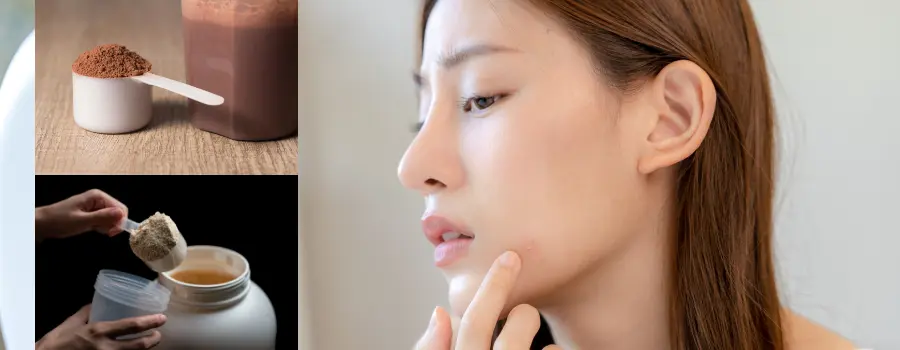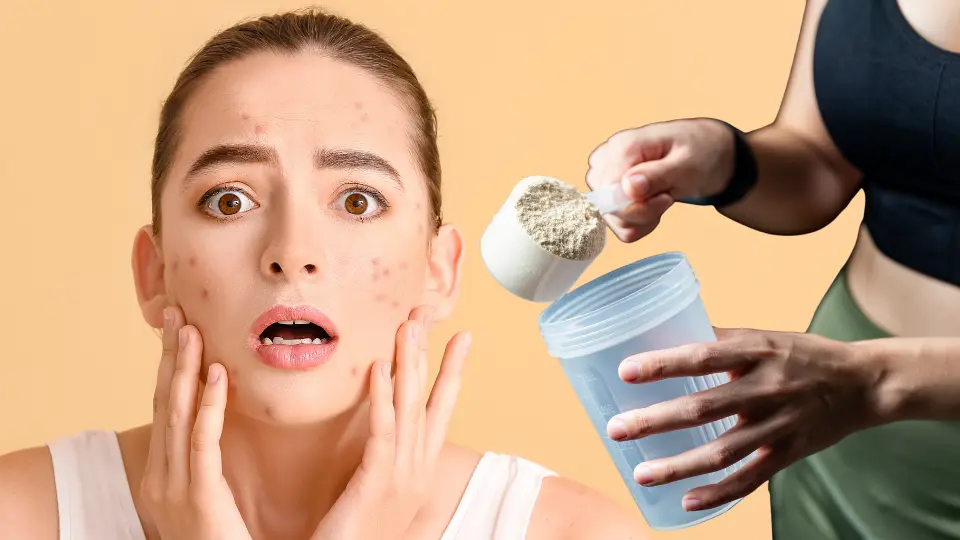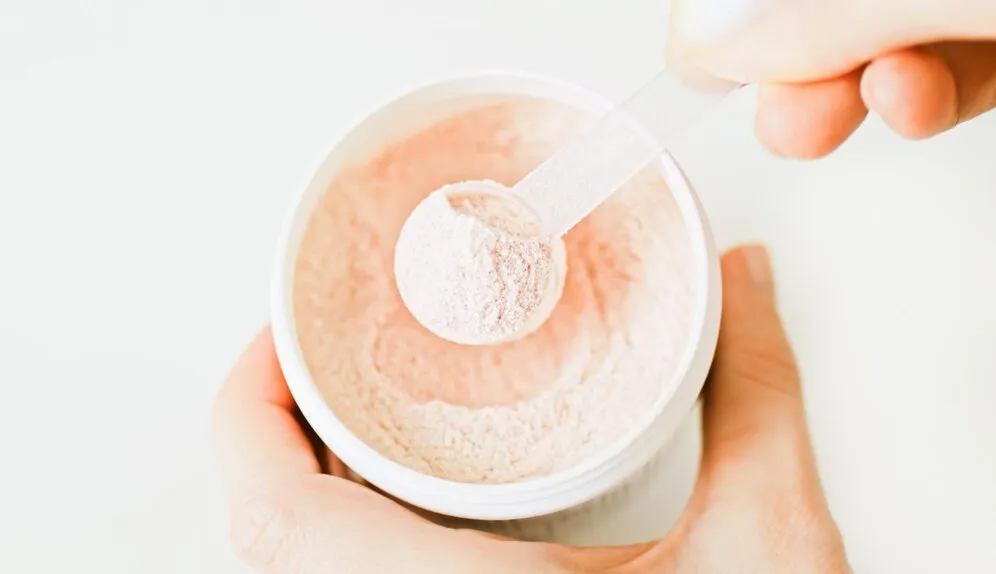Can Whey Protein Cause Acne? Here’s What You Need to Know

You’ve committed to improving your fitness and nutrition, but now you’re facing an unexpected side effect—acne. You’ve heard that whey protein, a popular supplement, might be linked to breakouts. It’s frustrating when something you’re using to build muscle and boost health seems to be causing a problem with your skin. In this article, we’ll explore the connection between whey protein and acne, backed by the latest research and practical advice. We’ll also discuss how to manage or prevent acne while still benefiting from whey protein.
Understanding Whey Protein
What is Whey Protein?
Whey protein is a type of protein derived from milk, specifically the liquid left after milk has been curdled and strained. This liquid is then processed and dried to form a protein powder. It’s popular among athletes and fitness enthusiasts for its ability to support muscle growth and repair.
Types of Whey Protein
- Whey Protein Concentrate (WPC): This is the most common form, containing between 34% to 89% protein. It retains more of the nutrients found in the original whey, including fats and carbohydrates.
- Whey Protein Isolate (WPI): With over 90% protein content, this form is processed to remove most fats and carbohydrates, making it a purer form of whey protein.
- Whey Protein Hydrolysate (WPH): This is a pre-digested form of whey protein that is easier for the body to absorb. It undergoes further processing to break down the protein into smaller peptides.

Whey Protein and Acne: The Connection
How Whey Protein Might Affect Your Skin
1. Increased Sebum Production: Whey protein can elevate levels of insulin-like growth factor 1 (IGF-1) in the body. This hormone can stimulate sebaceous glands to produce more sebum, which may lead to clogged pores and acne.
2. Inflammation: IGF-1 may also increase inflammation in the body. Since acne is partly an inflammatory condition, higher inflammation levels could potentially exacerbate breakouts.
Research Insights
Recent studies have shown a possible link between dairy consumption and acne. However, the evidence specifically connecting whey protein to acne is less clear. A study involving athletes suggested that whey protein might contribute to body acne due to its influence on sebum production. Yet, this study had limitations, such as a small sample size and lack of controls for other factors.
Individual Variability
Not everyone will experience acne from whey protein. Factors such as individual skin type, genetics, and overall diet play a role. Some people with sensitive or acne-prone skin may be more likely to notice breakouts.
Alternatives to Whey Protein
Plant-Based Proteins
1. Pea Protein: Made from yellow split peas, this protein is rich in essential amino acids and generally less likely to cause acne.
2. Rice Protein: Another good option, rice protein is hypoallergenic and easily digestible.
3. Hemp Protein: Derived from hemp seeds, this protein contains omega-3 fatty acids and is less likely to trigger acne.
Casein Protein
1. Slow Digesting: Casein, another milk-derived protein, digests slowly and might be less likely to cause spikes in IGF-1 compared to whey.
Egg White Protein
1. High Quality: Egg white protein is a complete protein and often well-tolerated by those with dairy sensitivities.
Managing Acne While Using Whey Protein
Skincare Routine
1. Cleansing: Use a gentle, non-comedogenic cleanser to remove excess oil and prevent clogged pores. Cleanse your face twice daily.
2. Treatment Products: Consider products containing salicylic acid or benzoyl peroxide to target acne directly.
3. Moisturizing: Even if you have oily skin, using a lightweight, oil-free moisturizer can help maintain a healthy skin barrier.
Dietary Adjustments
1. Monitor Your Intake: Pay attention to how your skin responds to different amounts of whey protein. Reducing intake or switching types may help.
2. Balanced Diet: Incorporate a variety of nutrient-rich foods that support skin health, such as fruits, vegetables, and whole grains.
Consultation with a Professional
1. Dermatologist: If acne persists, consult a dermatologist for personalized advice and treatment options.
2. Nutritionist: A nutritionist can help you adjust your diet to meet your goals while minimizing skin issues.
While whey protein is a beneficial supplement for many, its potential to cause acne is a concern for some users. The connection between whey protein and acne is not fully understood and can vary from person to person. By understanding the possible effects, exploring alternative protein sources, and maintaining a proper skincare routine, you can manage or prevent acne while continuing to reap the benefits of whey protein. Always consult with healthcare professionals for personalized advice and adjustments to your diet or skincare regimen.
By addressing the potential issues with whey protein and considering alternatives, you can make informed decisions about your health and skincare. Stay proactive in managing your diet and skincare to achieve the best results for both your fitness goals and skin health.
Are you interested in having your fiber brand? Intrigued by the business of whey protein drinks? Utilize the WHEY PROTEIN DRINK TOLL MANUFACTURING SERVICES provided by CV Putra Farma Yogyakarta! Our factory has been trusted for over 20 years in meeting the needs of clients to achieve their business success!
EXPLORE OUR WEBSITE OR CONTACT US NOW FOR MORE INFORMATION



